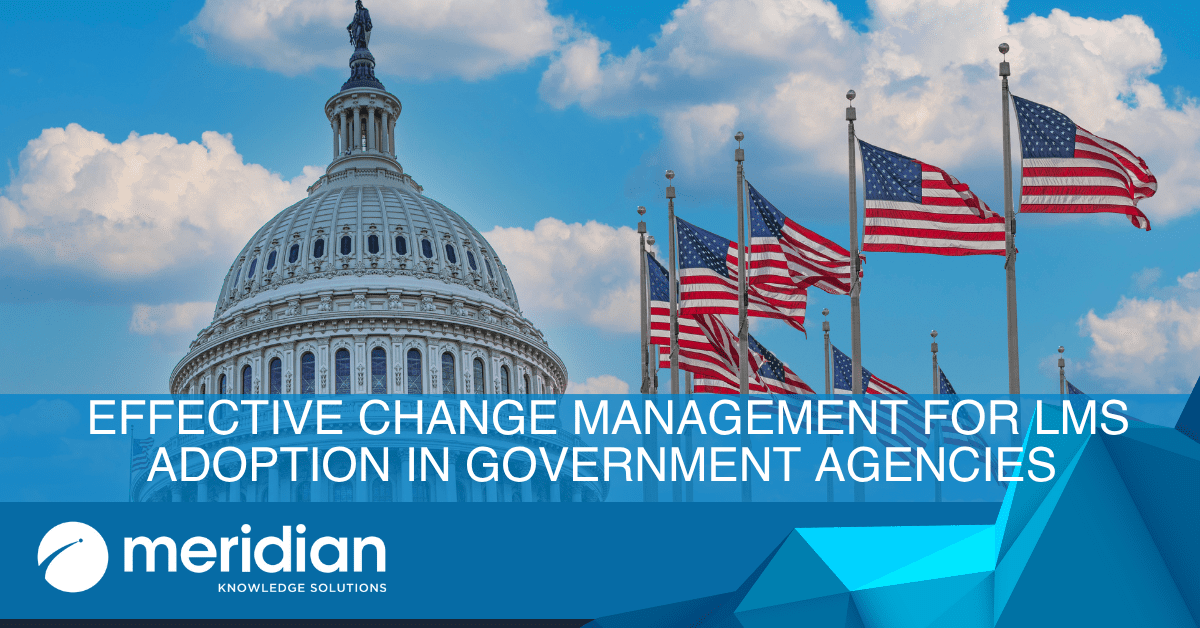
Security and compliance are top priorities for federal agencies implementing a Learning Management System (LMS). With increasing cyber threats and strict regulatory requirements, government organizations must ensure their LMS:
✅ Protects sensitive training data
✅ Meets federal compliance mandates
✅ Reduces cybersecurity vulnerabilities
Failing to comply with federal regulations can lead to data breaches, legal penalties, and operational disruptions. This guide explores:
🔹 Key compliance challenges federal agencies face
🔹 Best practices for securing an LMS
🔹 Emerging security technologies and future trends
Federal agencies must comply with strict security regulations when implementing an LMS. The most critical frameworks include:
📌 FISMA (Federal Information Security Management Act) – Requires agencies to assess cybersecurity risks in IT systems, including LMS platforms.
📌 NIST 800-53 & NIST 800-171 – Establishes security controls for handling federal training data and protecting classified information.
📌 FedRAMP – Ensures cloud-based LMS solutions meet federal cybersecurity standards before deployment.
📌 Section 508 – Mandates LMS accessibility for employees with disabilities, ensuring equal access to training materials.
Despite strict regulations, many agencies struggle to maintain LMS security due to:
❌ Weak authentication protocols – Lack of multi-factor authentication (MFA) exposes sensitive data.
❌ Inconsistent security audits – Agencies fail to conduct regular vulnerability assessments.
❌ Failure to encrypt training data – Unprotected personally identifiable information (PII) and compliance records increase breach risks.
❌ Lack of role-based access control (RBAC) – Employees may access unauthorized training content.
✅ Solution: Implement automated security compliance tracking within the LMS to ensure ongoing adherence to federal regulations.
🔹 Encrypt all LMS data – Protect information in transit and at rest using AES-256 encryption.
🔹 Enforce Multi-Factor Authentication (MFA) – Require government employees to verify their identities before accessing training content.
🔹 Use Single Sign-On (SSO) Integration – Simplifies access management while enhancing security.
🔹 Quarterly cybersecurity audits – Identify and mitigate LMS vulnerabilities proactively.
🔹 Penetration testing – Simulate cyberattacks to strengthen LMS defenses.
🔹 Compliance reporting tools – Automate tracking of training security compliance.
🔹 Cybersecurity training modules – Ensure federal employees understand phishing risks, password security, and data protection.
🔹 Role-based training access – Restrict sensitive compliance courses to authorized personnel only.
1. Select a Vendor with Robust Security Measures
🔹 Ensure the LMS provider offers FedRAMP and NIST 800-53 compliance.
🔹 Verify encryption, access controls, and vulnerability response protocols.
2. Integrate Compliance Checks Within LMS Workflows
🔹 Automate security audits – Reduce manual efforts in monitoring compliance.
🔹 Real-time compliance dashboards – Track LMS security performance in real time.
3. Enforce Secure API Integrations
🔹 Ensure third-party plugins and integrations meet government security standards.
🔹 Monitor all LMS data exchanges to detect security risks early.
Artificial Intelligence (AI) for Threat Detection
AI-powered security tools can:
✅ Analyze LMS user behavior for suspicious activity.
✅ Detect potential compliance violations in real-time.
✅ Automate risk assessments and policy updates.
🔹 Blockchain-based certificates ensure tamper-proof compliance records.
🔹 Decentralized verification prevents training fraud and fake certifications.
🔹 Agencies should prepare for new federal security mandates on data privacy and AI-powered compliance tracking.
📌 Further Reading: The Future of Cybersecurity in Government Training
Ensuring LMS security and compliance is essential for federal agencies managing workforce training.
By implementing:
✅ Strong encryption, MFA, and secure access protocols
✅ Regular cybersecurity audits and compliance tracking
✅ AI-powered automation for risk detection
Government agencies can efficiently reduce security risks and maintain LMS compliance.
🔹 Want to strengthen your agency’s LMS security? Request a demo to explore Meridian LMS’s secure, government-ready solutions.